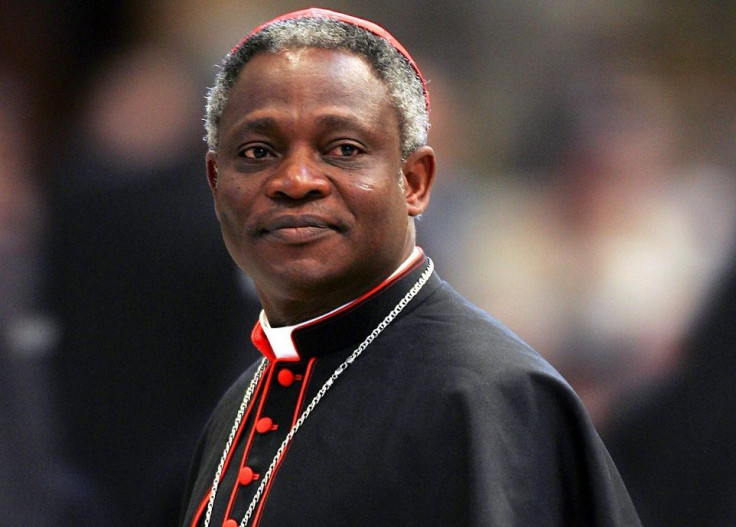The First Black Pope: Will Pope Benedict XVI's Successor Come From Africa?

The seat of the Catholic Church was established and will remain in Europe, but its future growth has become increasingly dependent on the developing world, where the majority of new believers are arising in places like sub-Saharan Africa and Latin America.
The German-born Pope Benedict XVI announced Monday that he will resign at the end of February, and, as the Vatican prepares to select a new leader -- a position held largely by Europeans during the church's 2,000-year history -- it is becoming more probable that the first non-European pope in centuries could appear given that three out of every four Catholics live outside of Europe.
“This may not necessarily be the case with the next pope but certainly in the near future,” Philip Jenkins, professor of history at Baylor University and author of several books on global Christianity, said.
Jenkins explained that the shift of the Catholic Church’s base away from Europe has partly been demographic with the majority of the world’s population growth occurring in the developing world.
“The numbers [of Catholics] worldwide have moved heavily toward these developing regions, especially in Africa,” he said.
In 1900, the population of the African continent was just over 100 million, and today it has tipped over 1 billion. According to the Vatican’s statistics in 2009, Africa’s share of the global population of Catholics increased from 1 percent to 15 percent over that same time period.
Europe’s population, by contrast, has only increased from around 200 million to 740 million in as many years with its share of Catholics dropping from 68 percent in 1900 to 24 percent in 2009.
There were some 179 million Catholics in Africa in 2009, compared to 284 million in Europe. Jenkins estimates that by 2030, the number of Catholics in Africa will surpass those in Europe.
Reflecting this growth in Africa, Ghanaian Cardinal Peter Kodwo Appiah Turkson has been named by outside observers as a leading contender for the papal seat.
Candidates from Latin America -- long a bastion for Catholicism with centuries of history of colonialism and proselytization by Europeans religiously tied to the Church -- have also been identified, including Brazilian Archbishop Odilo Scherer and Argentine Cardinal Leonardo Sandri.
The region represents some 42 percent of the world’s 1.2 billion Catholics, the largest block by far.
Senior Vatican officials themselves have hinted that the next pope may not be a European, despite the secrecy surrounding the pope’s election behind closed doors by a convention of the church’s cardinals known as the papal conclave.
“It would be good if there were candidates from Africa or South America at the next conclave,'' Swiss Cardinal Kurt Koch said, Reuters reported.
"The universal church teaches that Christianity isn't centered on Europe,” German Archbishop Gerhard Mueller said, quoted in the same report. "I know a lot of bishops and cardinals from Latin America who could take responsibility for the universal church.”
Nevertheless, the church’s leadership is far from reflecting the demographic shift in its following. Roughly half of the cardinals who will vote for the next pope are from Europe despite the fact that it only accounts for a quarter of the total global Catholic population.
“One of the little reported facts about Pope Benedict is that he has actually increased the number of European cardinals,” Jenkins said. “This doesn’t automatically mean that a European cardinal won’t vote for a non-European, but it shows a lack of representation in the structure of the church.”
© Copyright IBTimes 2024. All rights reserved.





















